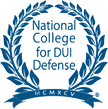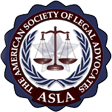
We’ve all heard stories about people who have talked their way out of a traffic ticket or an arrest. The truth is, most of these stories are made up, or at least exaggerations. Those few instances where someone actually convinced the police to turn a blind eye to a criminal offense are merely exceptions to the general rule that the less you say to the police, the better.
At Emerald City Law Group, we fight to obtain better case outcomes for clients who exercise their right to remain silent while under criminal investigation. If you are suspected of criminal wrongdoing, don’t talk to the police. Call a criminal defense lawyer from our firm at (206) 973-0407, or send us a message online to schedule a free consultation about your legal options.
You Have the Right to Remain Silent
Robert Jackson, a widely respected Supreme Court Justice and former prosecutor, once said, “any lawyer worth his salt will tell the suspect in no uncertain terms to make no statement to the police under any circumstances.” This leaves little doubt as to whether it’s a good idea to try to talk yourself out of a sticky situation involving law enforcement.
The Fifth Amendment of the United States Constitution gives you the right to remain silent when you are subject to a criminal investigation or prosecution. Importantly, your choice to invoke this right and to remain silent cannot be used as evidence of your guilt. This concept was incorporated into the Bill of Rights for a reason: it’s an essential tool in defending against criminal charges and keeping government power in check.
In a very small number of cases, explaining yourself to the police could result in them letting you go. But in the vast majority of cases, your talking will either make no difference or make matters worse. If you remain silent, however, your situation cannot possibly get any worse.
When You Talk to the Police, You Provide the State With Evidence
Law enforcement officers are highly-trained observers. When you talk to them, they are doing more than just listening to your words. They are carefully determining whether they have probable cause to arrest you. The more you say, the higher the chances of them gaining probable cause. Later, if your case goes to trial, the police may testify about their observations of their encounter with you. When the police tell you that “everything you say can be used against you,” they mean it.
When you explain yourself to law enforcement, you may inadvertently divulge incriminating information. You may give the police an indication of where you were at the time of the incident, which may later be used to discredit your alibi later on at your trial.
The problem with talking to the police is especially acute in DUI cases, because in your inebriated state, you have less control than you think over what you say. You may think you are acting smooth, but more likely than not, you are just confirming the police’s suspicion that you are drunk. And even if you can coherently speak with the police, the smell of alcohol in your breath or a few slurred words may give you away.
Remain Calm, Polite, and Ask to Talk With Your Lawyer
Having established that it’s not a good idea to talk with the police, what should you do instead? If the police have pulled you over in your vehicle, you should comply with their request to see your driver’s license, registration, and insurance information. But once the officer asks you about how fast you were going, whether you’ve been drinking, or whether you know why they pulled you over, your best interests would be served by politely declining to answer.
Contact a Seattle Criminal Defense Lawyer for Help
If the police stop you in the street, they can only detain you for a short time before letting you go. But if they develop probable cause to arrest you during this encounter – often because you’ve said something incriminating – they may arrest you. During this type of encounter, you are not obligated to answer their questions. If you get arrested, the only time you should break your silence is when you ask to speak with your lawyer. At Emerald City Law Group, we are ready to take your call.
Schedule a free and confidential case consultation by calling (206) 973-0407, or by reaching out through our online form.
View All Blogs





